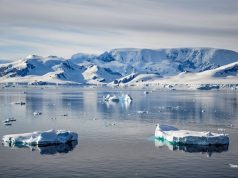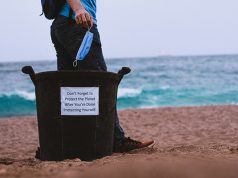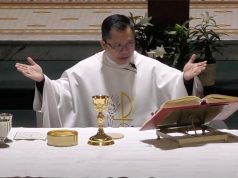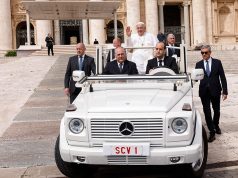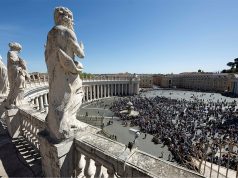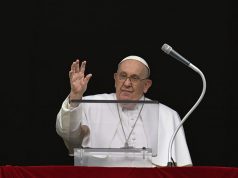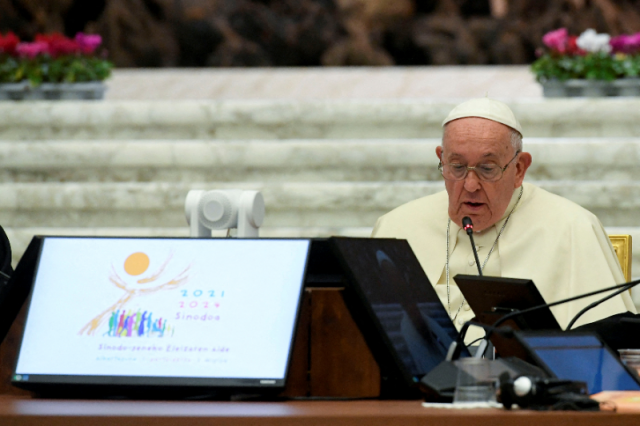
VATICAN CITY — Pope Francis on Wednesday appealed to climate change deniers and foot-dragging politicians to have a change of heart, saying they cannot gloss over its human causes or deride scientific facts while the planet “may be nearing the breaking point”.
In the new document, released ahead of the COP28 conference starting next month in Dubai, Francis said the transition to clean, renewable energy and the abandonment of fossil fuels was not going fast enough.
He warned against putting too much trust in technology to capture gas emissions, saying that while it was promising, it did not tackle the human causes at the root of global warming.
The 7,000-word document, called Laudate Deum (Praise God), is a follow-up to his 2015 encyclical on the environment “Laudato Si” (Praise Be). It was prompted by extreme weather events since then, which he called the earth’s “cries of protest”.
“The world in which we live is collapsing and may be nearing the breaking point,” he said. “It is indubitable that the impact of climate change will increasingly prejudice the lives and families of many persons.”
Good will
Addressed to “All people of good will on the climate crisis,” it includes some highly technical sections that read like a scientific or foreign policy paper.
“Despite all attempts to deny, conceal, gloss over or relativize the issue, the signs of climate change are here and increasingly evident,” he said.
“No one can ignore the fact that in recent years we have witnessed extreme weather phenomena, frequent periods of unusual heat, drought and other cries of protest on the part of the earth that are only a few palpable expressions of a silent disease that affects everyone,” he said.
Francis called for an abandonment of “short-term interests of certain countries or businesses,” and political forces, saying it was high time to rise to the occasion. “In this way, may they demonstrate the nobility of politics and not its shame”.
Saying “it is no longer possible to doubt the human – ‘antropic’ – origin of climate change,” he took aim at those who “deride these facts,” saying they use “allegedly scientific data” to show that the planet has always had periods of warming and cooling.
He specifically faulted deniers and sceptics for refusing to acknowledge the speed of the current changes taking place over “one generation – not centuries or millennia”.
“The rise in the sea level and the melting of glaciers can be easily perceived by an individual in his or her lifetime, and probably in a few years many populations will have to move their homes because of these facts,” he wrote.
Timed for effect
“If we are confident in the capacity of human beings to transcend their petty interests and to think in bigger terms, we can keep hoping that COP28 will allow for a decisive acceleration of energy transition, with effective commitments subject to ongoing monitoring,” he said.
Failure in Dubai, he said, “will be a great disappointment and jeopardize whatever good has been achieved thus far”.
Activists groups should not be labeled as “radicalized,” he said, because they are “filling a space left empty by society as a whole”.
The footnotes of the document, which in some parts referred to highly specific projections of temperature increases, statistics about melting icecaps and other technical matters, refer to reports from Catholic sources, the United Nations, specific laboratories and the Intergovernmental Panel on Climate Change (IPCC).
Francis acknowledged that even the Church was divided on climate change. He gave no examples but in the United States, for example, former President Donald Trump’s assertion that climate change was “a hoax” was backed by some U.S. bishops.
“I feel obliged to make these clarifications, which may appear obvious, because of certain dismissive and scarcely reasonable opinions that I encounter, even within the Catholic Church,” Francis wrote.
“Yet we can no longer doubt that the reason for the unusual rapidity of these dangerous changes is a fact that cannot be concealed.”
– Reporting by Philip Pullella; Editing by Angus MacSwan




